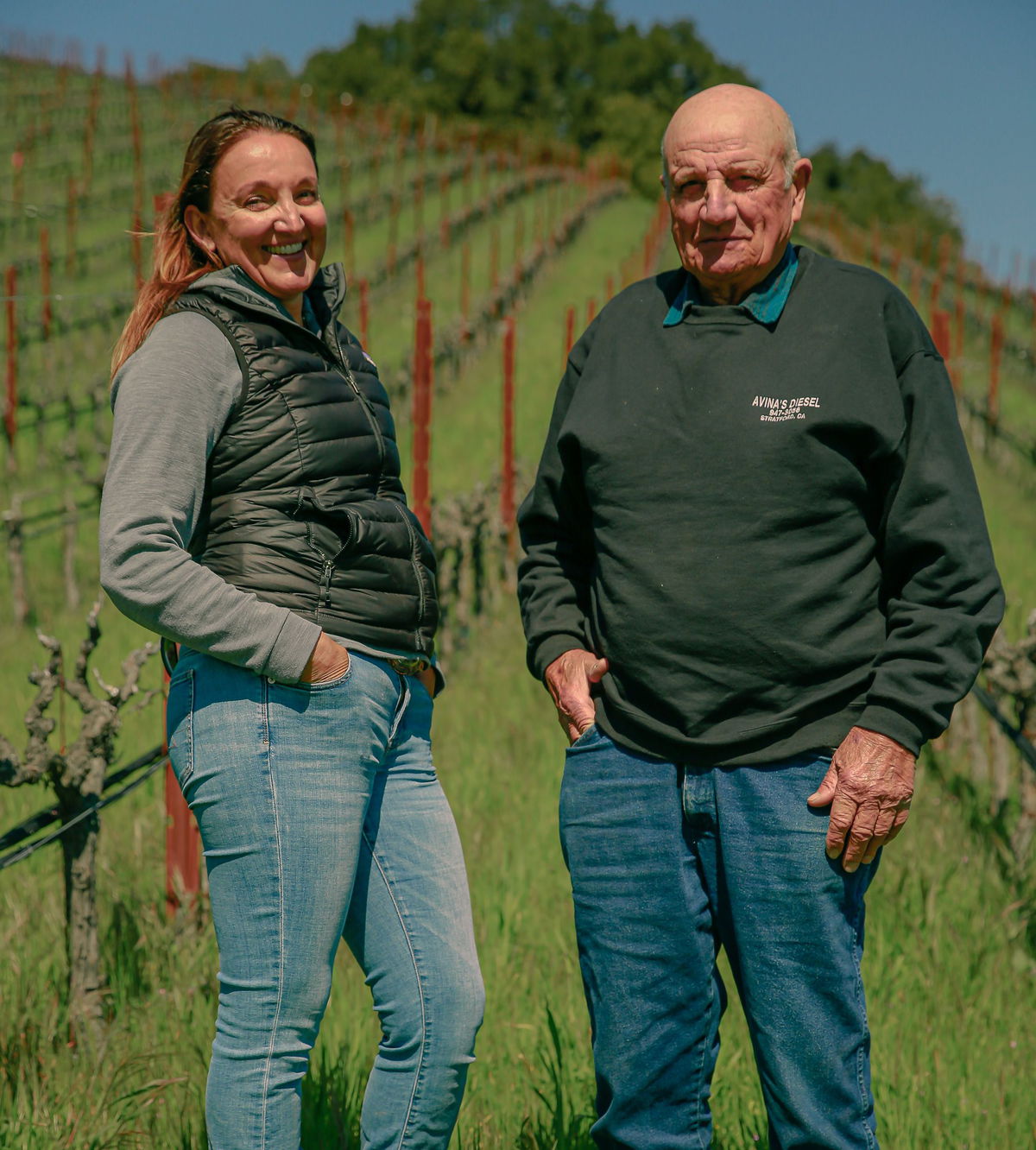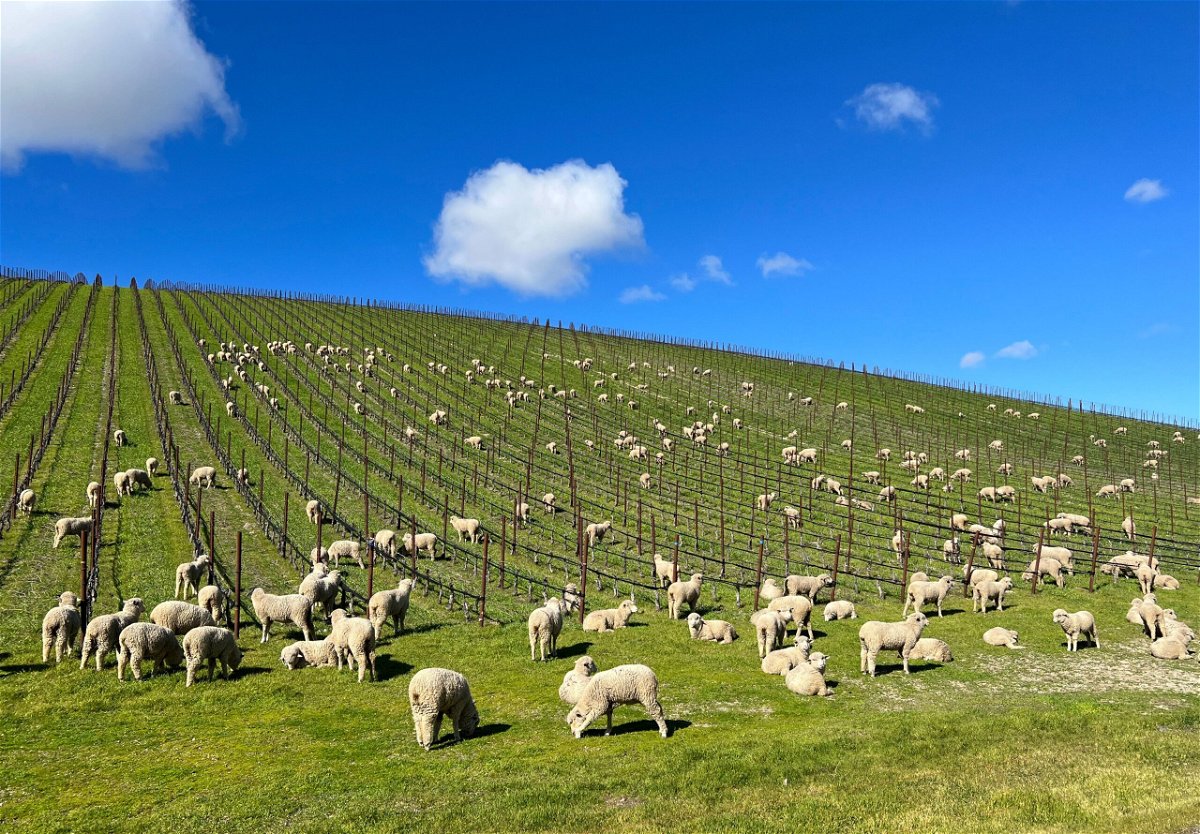Hungry sheep make happy work of vineyard’s labor needs

PASO ROBLES, Calif. – Booker Vineyard in Paso Robles hosted more than 1,200 sheep as part of a handshake deal for a mutually beneficial farming technique known as mob grazing.
The technique relies on using a large grazing herd over a short period of time.
The nourishing cover crops are munched on by the hungry herd, trimming the plants used to re-enrich the vineyards soil and a trail of 'deposits' naturally fertilize the vines.
Local herder Jean-Baptiste Jaureguy explains his reasoning, "Natural feed is the best, and that’s why my sheep are very happy at Booker Vineyard,” he said. “It makes me happy, too, because I like to work outside in this beautiful countryside.”

The Paso Robles-based herder runs a herd of up to 6,000 sheep and moves them around the area varying their diet and enriching local soil.
This model of progressive farming has ancient roots. “This is a win-win arrangement for all of us,” said Hilary Graves, vineyard manager at Booker Vineyard. “It provides us with all of the benefits of a robust cover crop—including nitrogen fixing and carbon capture—without compacting the soil and burning fossil fuels to run a tractor-mower. It also saves the 80 hours it would take to run a mower across our vineyard. It’s a modern solution that draws upon ancient ways of organic land management.”
An emphasis on organic farming has been part of the process at Booker Vineyard since 2006 and in 2021, it received certification from one of the most stringent programs of its kind, the California Certified Organic Farmers.
This achievement has not slowed the pace of innovation at Booker which is seeking Regenerative Organic Certified status this summer.
“Regenerative viticulture takes inspiration from nature,” said Farmer-Winemaker and founder of Booker Vineyard, Eric Jensen. “Whereas organic spells out what you can’t do, regenerative takes it a step further to create discernable improvement to the ecological and social function of the farm and community. In this way, problems are solved holistically within the parameters of a healthy ecosystem—which is something we’ve always strived for at Booker.”
Even the cover plants are selected keeping their future consumers in mind by mixing in grasses more palatable for sheep with legumes, used for nitrogen fixing, and prairie grasses, used for channeling water deeper into the vine's roots.
These cover crops also promote carbon capture and control soil erosion, especially important after recent heavy rains this winter soaked Booker's steep slopes.
